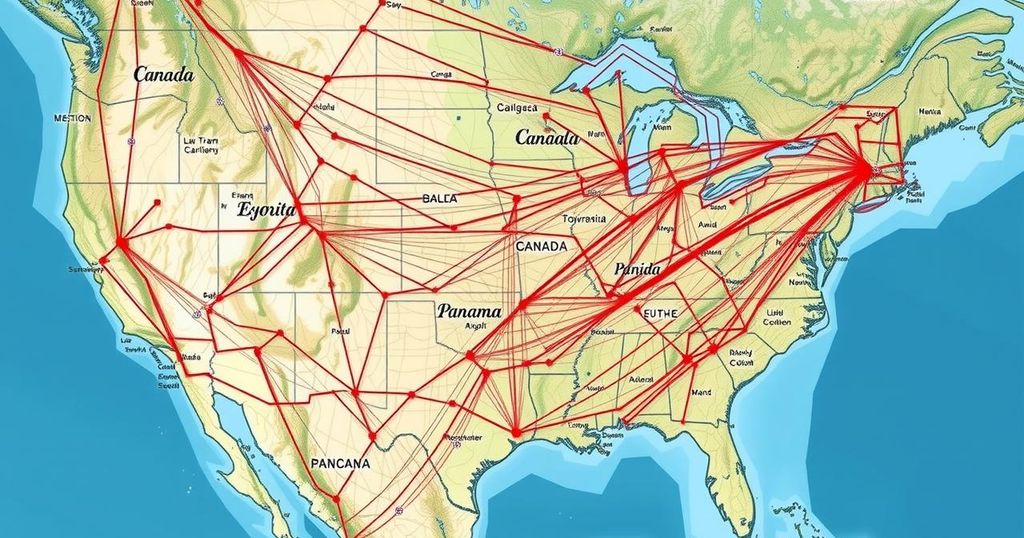Donald Trump has suggested the potential for U.S. expansion by absorbing Canada, reclaiming Panama Canal control, and renewing interest in Greenland. His provocative remarks blend nationalistic sentiment with strategic considerations, although their sincerity remains in question. These notions echo historical themes of territorial acquisition, raising concerns about diplomatic relations during his presidency.
President-elect Donald Trump is engaging in provocative discussions regarding potential territorial expansion of the United States. His remarks over the past week have included notions that Canada could become the 51st state, a controversial claim to the Panama Canal, and renewed interest in acquiring Greenland from Denmark. These statements demonstrate a penchant for stirring debate, though it remains unclear whether they stem from genuine policy intent or are merely rhetorical flourishes designed to capture media attention and energize his political base.
The discourse surrounding U.S. territorial expansion has profound historical roots, echoing the 19th-century doctrine of Manifest Destiny, which justified American territorial acquisition as a divine right. Trump’s recent comments indicate a desire to reassert U.S. influence in North America and beyond, particularly in relation to significant geopolitical assets like the Panama Canal and Greenland. These territories have strategic importance, and Trump’s statements reflect a nationalist agenda, even as they challenge established international agreements and relations.
In summary, President-elect Trump’s remarks regarding American expansion underscore a contentious approach to foreign relations and territorial claims. By suggesting the U.S. could absorb Canada, reclaim the Panama Canal, and acquire Greenland, Trump revives a sense of American exceptionalism that could foster international tensions. The implications of such proposals remain uncertain and could provoke significant backlash from the affected nations.
Original Source: www.cnn.com






